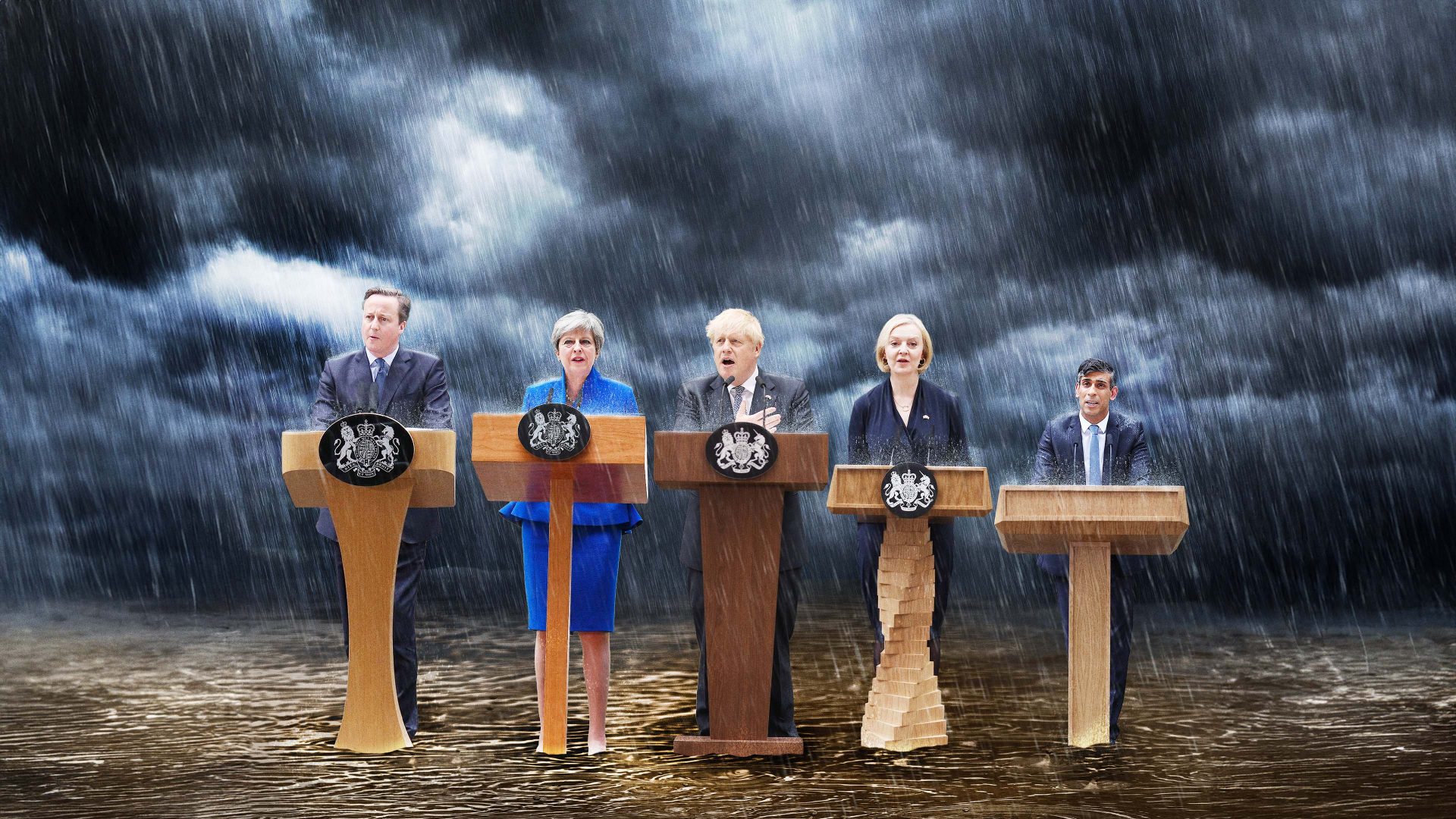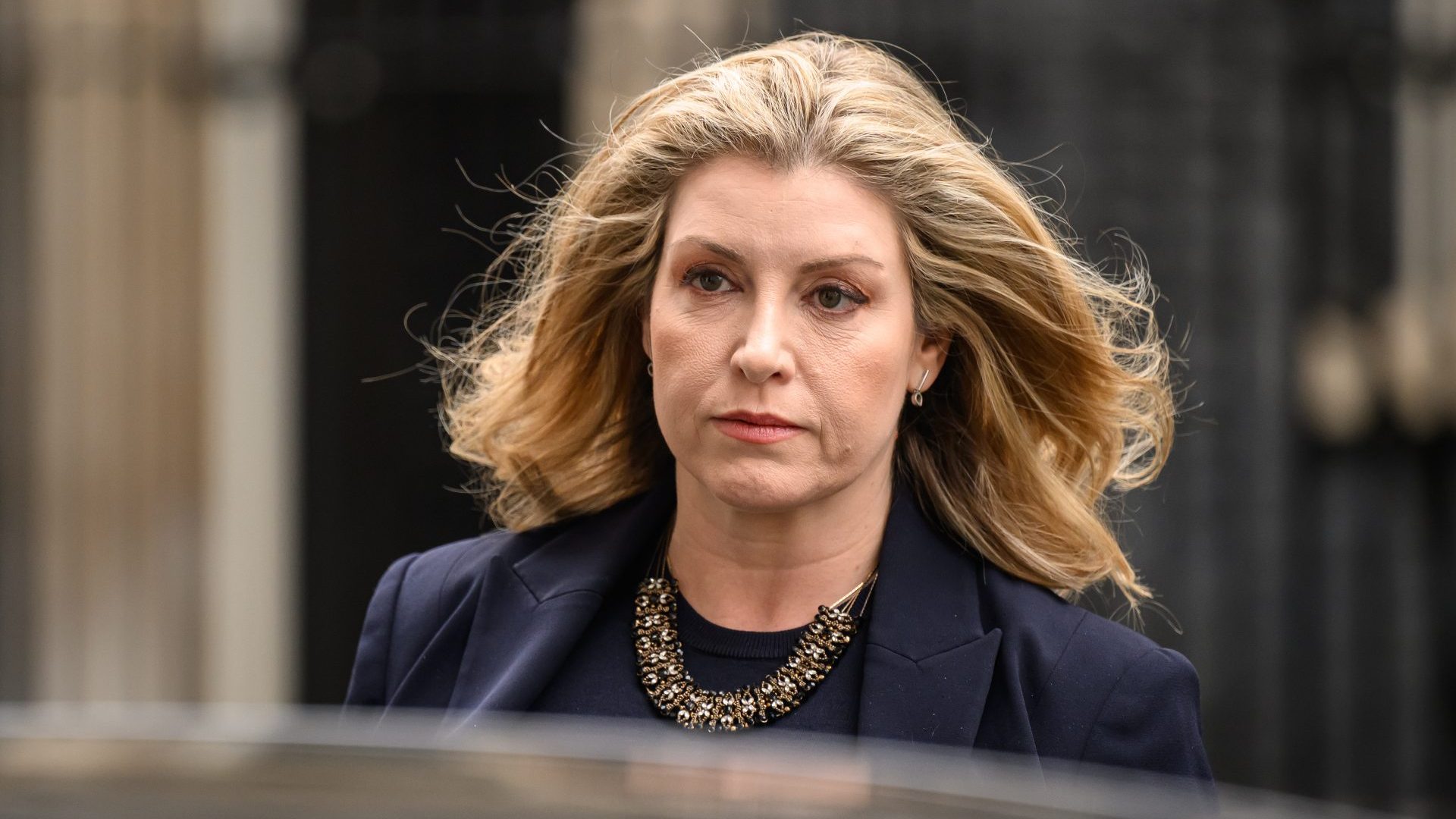Bad ideas that are nonetheless popular with at least a subset of the British electorate are a necessity of electoral campaigning.
At the extreme limit is, for example, bringing back the death penalty – which would be immoral, unworkable and largely unpopular, except with perhaps around 30% of voters. At the more mainstream end might be scrapping tuition fees, which is far more defensible but similarly factional: to promise to prioritise this over other causes is a sign you’re worried about your support.
So where, then, on that scale should Rishi Sunak’s first new policy of the general election be placed? The prime minister has pledged to bring back “mandatory national service”, in one of two forms – either a year’s paid work for the military, or a weekend a month unpaid for some other good cause.
If ever there was a policy designed to play to the absolute core of the Conservative base, it is surely this – tapping into the idea of military greatness, doing something about the youth of today, and tickling the nostalgia bone, too. Never mind that the youngest person to have actually done national service in the UK is now in their mid-80s, this policy is clearly intended to harken back to better days for older voters.
The fact of a policy like this coming less than a week into an election campaign is itself bizarre: it is not countering or dislodging any Labour ideas from the headlines, it is not aimed at floating voters, and it is an idea that Sunak himself has roundly rejected on multiple occasions.
Perhaps it is simply a way to reset the launch of a campaign that otherwise saw Sunak kick things off in the pouring rain to the soundtrack of Things Can Only Get Better, only to follow it up by asking workers at a Welsh brewery if they were looking forward to the Euros (Wales did not qualify), or doing a Titanic-themed photoshoot in Northern Ireland.
Anyone launching anything in quite such a disastrous way is going to want to move the story along – and so Sunak’s team briefed that he was working on a policy with his team last Saturday. By 10pm they had briefed out what is now the new plan for “national service” for every 18-year-old in the nation.
We can return to the politics of the situation later, but let us first treat this seriously as a policy proposal from the current prime minister. One thing to note at the get-go is the convenient lack of details – there are just enough details to facilitate headlines and to claim the policy is costed, while at the same time the proposals in theory just propose a “royal commission” to set out how mandatory national service will work – allowing follow-up questions to be deflected.
Or at least that seemed to be the theory when the proposals were thrown together hastily on Saturday. The details of the plan as we know them are that they will cover 18-year-olds and require them to do one of two things over a 12-month period.
They either need to join the military and train for one of a range of support roles – which will be full-time, paid, and open to around 30,000 people a year. Or the remainder of the nation’s 700,000 18-year-olds would have to work the equivalent of a weekend a month, unpaid, in some form of community service – from roles in the NHS, St John Ambulance, fire service, police or mountain rescue.
The Conservatives were keen to frame this as “voluntary” work for the community, presumably to emphasise one aspect contained in that word – that such work would be unpaid. However, the announcement emphasises on multiple occasions that the scheme would be mandatory for 18-year-olds, meaning that it is compulsory, unpaid work. “Voluntary” is not usually a term applied to that situation.
Further problems arose when journalists asked what would happen if someone didn’t do their “mandatory” national service: would that be a criminal offence? Could they face jail time?
In a thankless morning broadcast round on Sunday, the home secretary, James Cleverly, said young people would not be criminalised for not doing their national service, but seemed rather stuck as to what would actually happen to compel it. On Monday came suggestions that parents might be fined if their children did not take part, and that failing to volunteer may exclude you from working in the public sector in future.
The “voluntary” work is almost, though, a sideshow to how national service is traditionally presented – in its original form, it did require military service, and the Conservative proposals bring this element back.
Military service is framed as something of an elite, competitive thing – less than 5% of 18-year-olds would take on this route. But the military recruits far fewer than this number of 18-year-olds at present, and it is desperate to hire more.
Given that the alternative to a full-time year in the military is 12 weekends, why would the best and brightest suddenly be competing for these jobs? More significantly, how can a military of 80,000 absorb 30,000 recruits each year, almost all of whom would leave after 12 months, without huge new resources and much distraction?
Defence sources were at best bemused and at worst aghast at the barely-thought-through plans – but largely sanguine because they are seen as dead on arrival. One thing that raised eyebrows, though, was the implied equivalence of a few weeks of volunteering against a military career.
Even the civilian volunteering raises endless issues: charities have full-time, paid volunteer managers – because managing unpaid workers is notoriously difficult, even when they are choosing to be there. Dropping hundreds of thousands of unwilling, unpaid young people on to services is likely to prove a drag, not a gain.
Sunak appeared to know all of this: he rejected think tank proposals to bring back national service earlier in 2024, and as chancellor dramatically slashed the budget of government-run volunteering schemes for young people (having reportedly been in favour of scrapping them entirely).
On Thursday – a day after the election was called – one of Sunak’s ministers gave a written answer calling national service a drain on time and resources, ruling it out as an option. On Monday, Northern Ireland minister Steve Baker openly defied Sunak over the volte-face, tweeting: “A government policy would have been developed by ministers on the advice of officials and collectively agreed. I would have had a say on behalf of NI. But this proposal was developed by a political adviser or advisers and sprung on candidates, some of whom are relevant ministers.”
The new proposal would cost money: the Tory estimate is £2.5bn a year, regarded as being far less than it would actually cost. Some funding would come from cracking down on tax avoidance (which raises the question of why a government of 14 years hasn’t done this already).
The majority, though – £1.5bn a year – would come from scrapping the government’s replacement scheme for EU Structural Funds, which bolstered lower-income areas with investment, and which was a firm Brexit promise in the 2019 election. Sunak is scrapping a promise to promote investment post-Brexit with one to force 18-year-olds into unpaid jobs.
Needless to say, £2.5bn a year is not small change: the government’s two-child cap on benefits could be scrapped for less than £2bn a year. This would lift 300,000 children out of poverty entirely, and reduce the poverty of 700,000 more. Instead, Sunak proposes a plan that even his own ministers don’t understand.
Beyond getting a headline of “bringing back national service”, what is this policy for? It cannot be about bringing back a culture of military service, as it doesn’t propose for 95% of young people to join.
Cleverly said it was about bringing young people from different backgrounds together – but why not do that when they’re much younger through childcare services, or similar? It’s certainly not something Sunak is doing because he believes in it. The policy was drawn up on the back of a crisp packet on Saturday, and has stood up about as well as one to even the lightest breeze of scrutiny.
When parties panic during an election, they look to launch policies that their base will like and that their opponents’ won’t. It is the equivalent of a button behind a plate of glass reading “IN CASE OF EMERGENCY”.
Generally, these do not happen in the first 72 hours of a campaign, which especially for the governing party is supposed to be quite well mapped out. Sunak has pulled his first rip cord; it did not look planned, and it does not seem to have slowed his fall.
Does he have enough emergency buttons left to prevent a five-week freefall?




